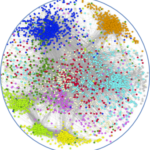Link to Pubmed [PMID] – 26215737
Link to DOI – 10.1007/s00726-015-2057-3
Amino Acids 2015 Dec; 47(12): 2647-58
Cationic amino acid transporters (CATs) mediate the entry of L-type cationic amino acids (arginine, ornithine and lysine) into the cells including neurons. CAT-3, encoded by the SLC7A3 gene on chromosome X, is one of the three CATs present in the human genome, with selective expression in brain. SLC7A3 is highly intolerant to variation in humans, as attested by the low frequency of deleterious variants in available databases, but the impact on variants in this gene in humans remains undefined. In this study, we identified a missense variant in SLC7A3, encoding the CAT-3 cationic amino acid transporter, on chromosome X by exome sequencing in two brothers with autism spectrum disorder (ASD). We then sequenced the SLC7A3 coding sequence in 148 male patients with ASD and identified three additional rare missense variants in unrelated patients. Functional analyses of the mutant transporters showed that two of the four identified variants cause severe or moderate loss of CAT-3 function due to altered protein stability or abnormal trafficking to the plasma membrane. The patient with the most deleterious SLC7A3 variant had high-functioning autism and epilepsy, and also carries a de novo 16p11.2 duplication possibly contributing to his phenotype. This study shows that rare hypomorphic variants of SLC7A3 exist in male individuals and suggest that SLC7A3 variants possibly contribute to the etiology of ASD in male subjects in association with other genetic factors.


